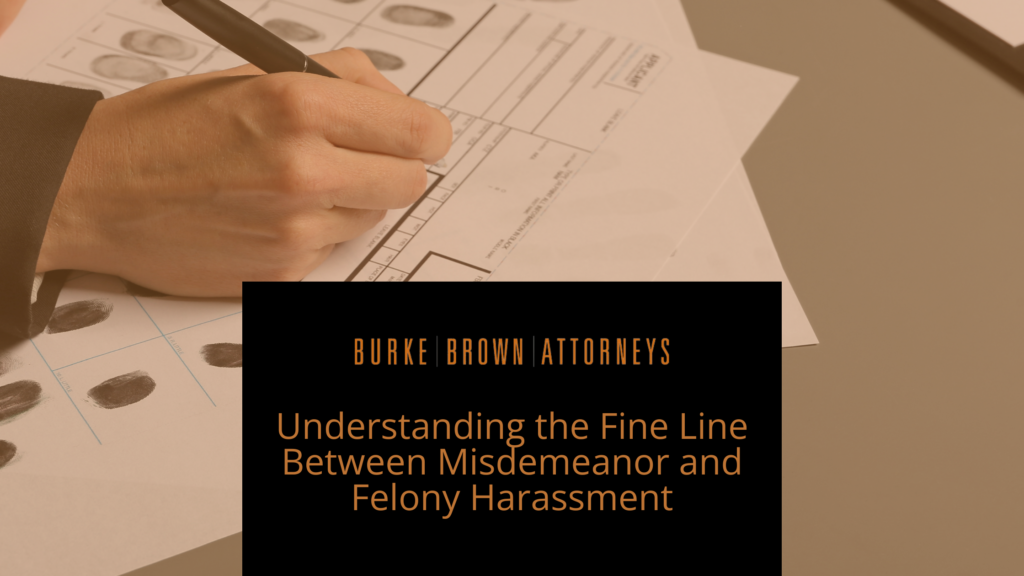
Words carry weight in the eyes of the law. People often contact a criminal defense attorney dumbfounded that the things they say can actually have criminal consequences. Harassment is one particular charge that is often thrown at alleged offenders who make threats, but there are varying levels to these charges.
It’s important to avoid charges of any form, but short of that, you need to understand the distinct differences between misdemeanor harassment charges and felony harassment charges in Washington. The difference could mean spending less than a year in prison (for misdemeanors) instead of up to five years (for felonies).
Defining Harassment Under Washington Law
Washington state code Section 9.A.46.020 says a person is guilty of harassment if they threaten to cause bodily injury immediately or in the future to any other person or to the property of another person and the victim has a reasonable fear that the words will be acted upon.
This is the baseline for a misdemeanor harassment charge in Washington. These charges elevate to a Class C Felony if the threat is against the life of a person or group or if any of the following circumstances are present:
- The alleged offender has a previous harassment charge in any state in connection to the victim, the victim’s family, or a member of the victim’s household; OR
- Has a no-contact order issued on behalf of the alleged victim; OR
- The victim is a “criminal justice participant” (such as a police officer or judge) who is performing their official duties at the time of the threat
What If the Threat Was Intended as Sarcasm?
People often say they were just fooling around and never meant to actually threaten anyone. The circumstances surrounding the threat often provide the necessary context here, but in today’s culture, the courts will err on the side of caution.
This means discretion is important. Don’t use words you aren’t confident will be interpreted by others as sarcasm. “I could kill you” and “I’m going to kill you” may sound different but ultimately be interpreted similarly depending on the listener. Telling the judge or jury you didn’t mean it likely won’t hold as a valid defense. The Court looks at the impact on the person who heard the statement and whether that person’s fear is reasonable.
The recipient’s interpretation and claim of reasonable fear that the act is able to be carried out may trump explanations that the comment was sarcasm or a figure of speech. Ideally, you would never be forced into these circumstances where you must defend your words against misdemeanor or felony charges.
If you are put in that situation, don’t go it alone. The team at Burke Brown Attorneys understands vital harassment defense strategies that help the accused escape or lessen jail time or adverse consequences significantly. Contact our firm if you’re facing harassment charges in King County, Washington, and need a reliable defense team.
Burke Brown Attorneys
Latest posts by Burke Brown Attorneys (see all)
- What Options Do You Have When CPS is Weaponized Against You? - April 3, 2024


